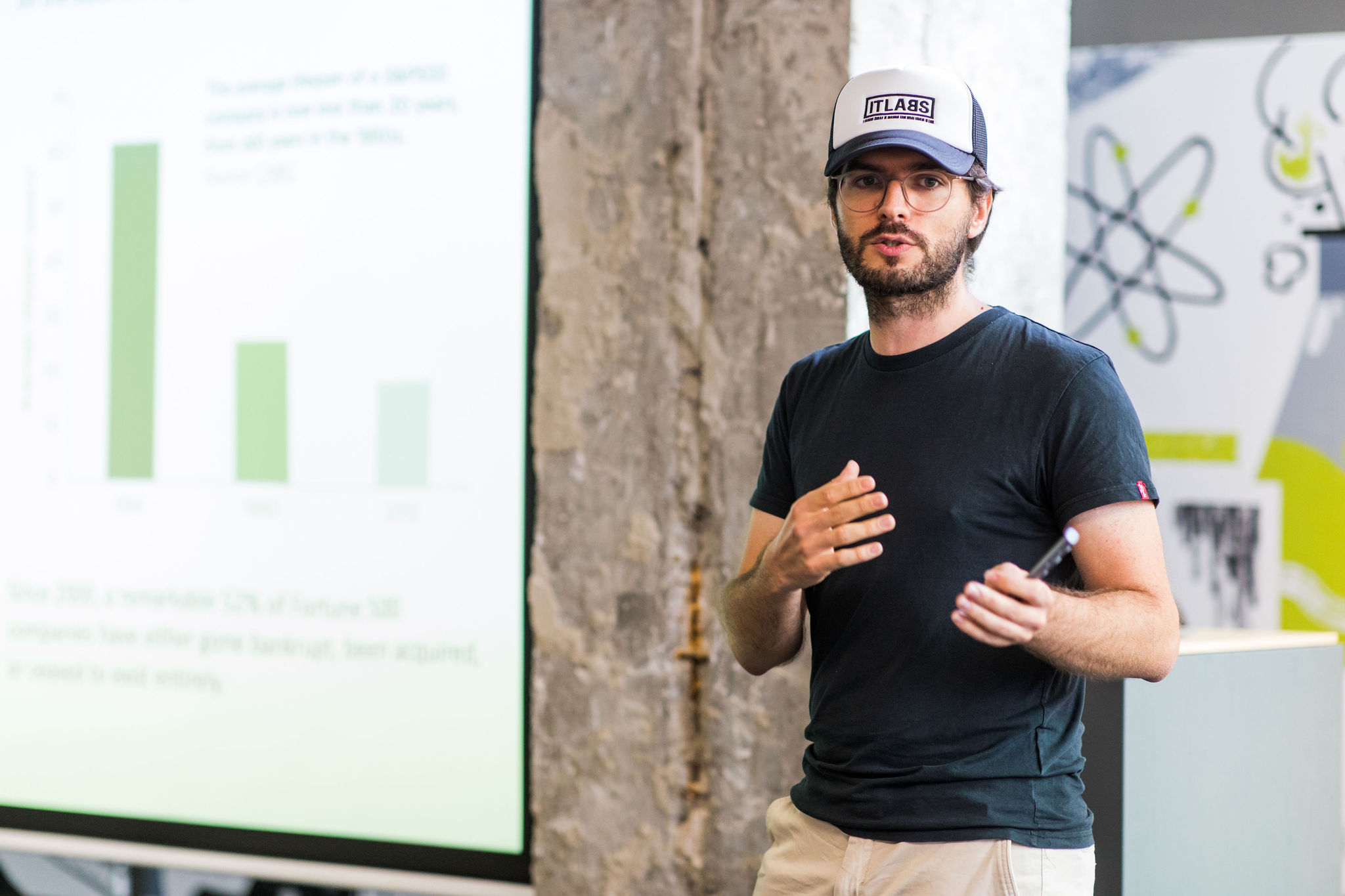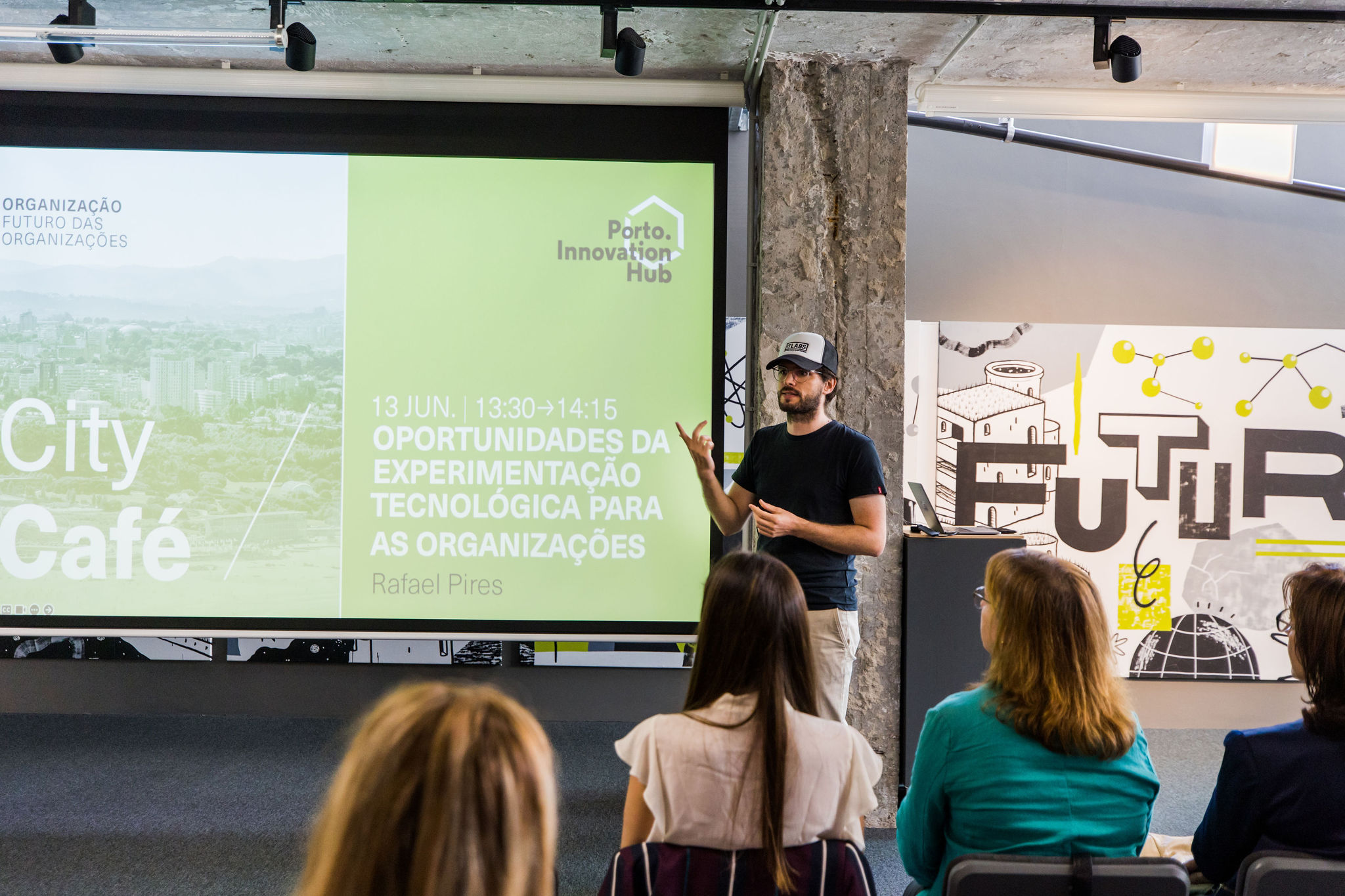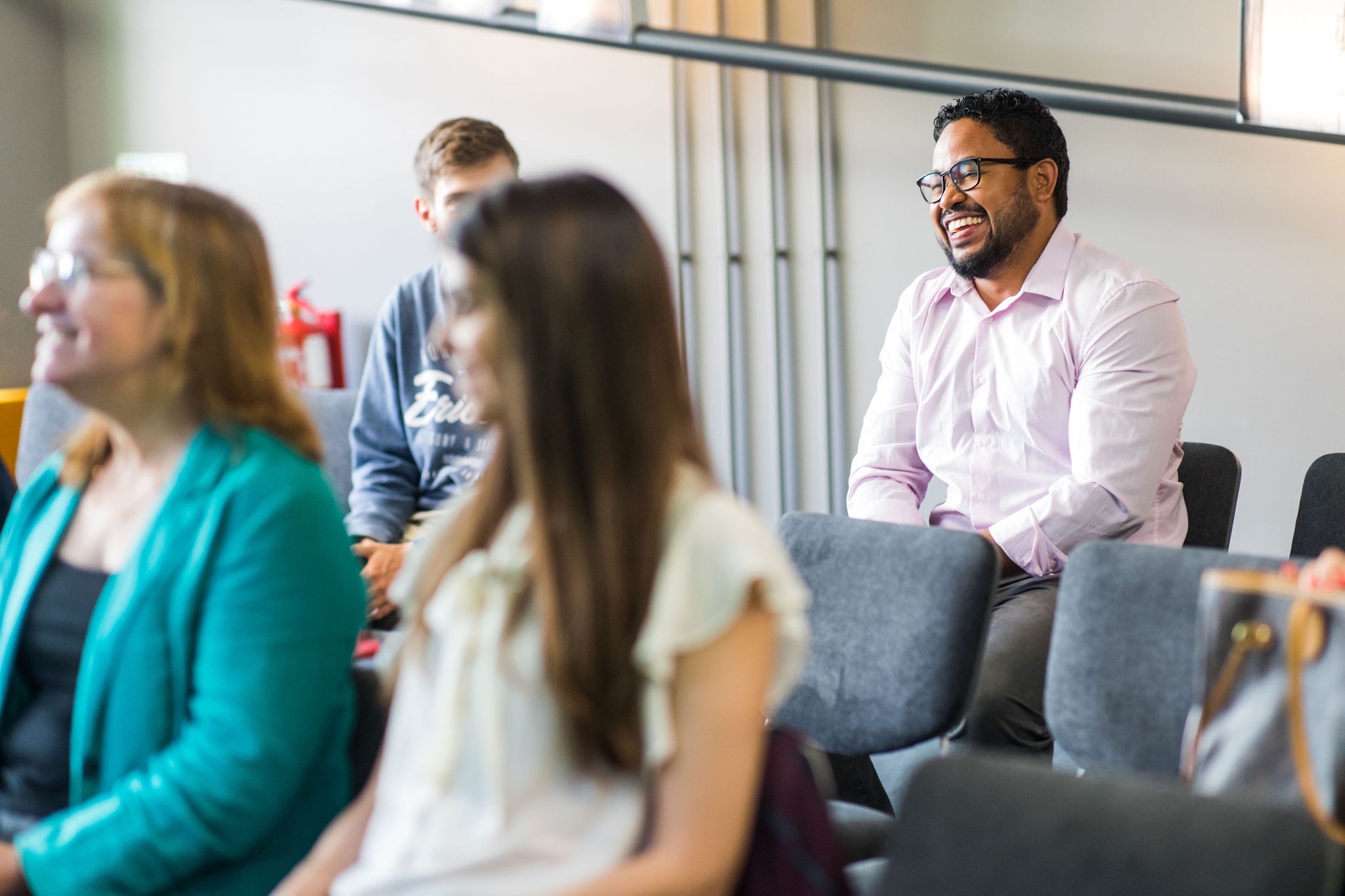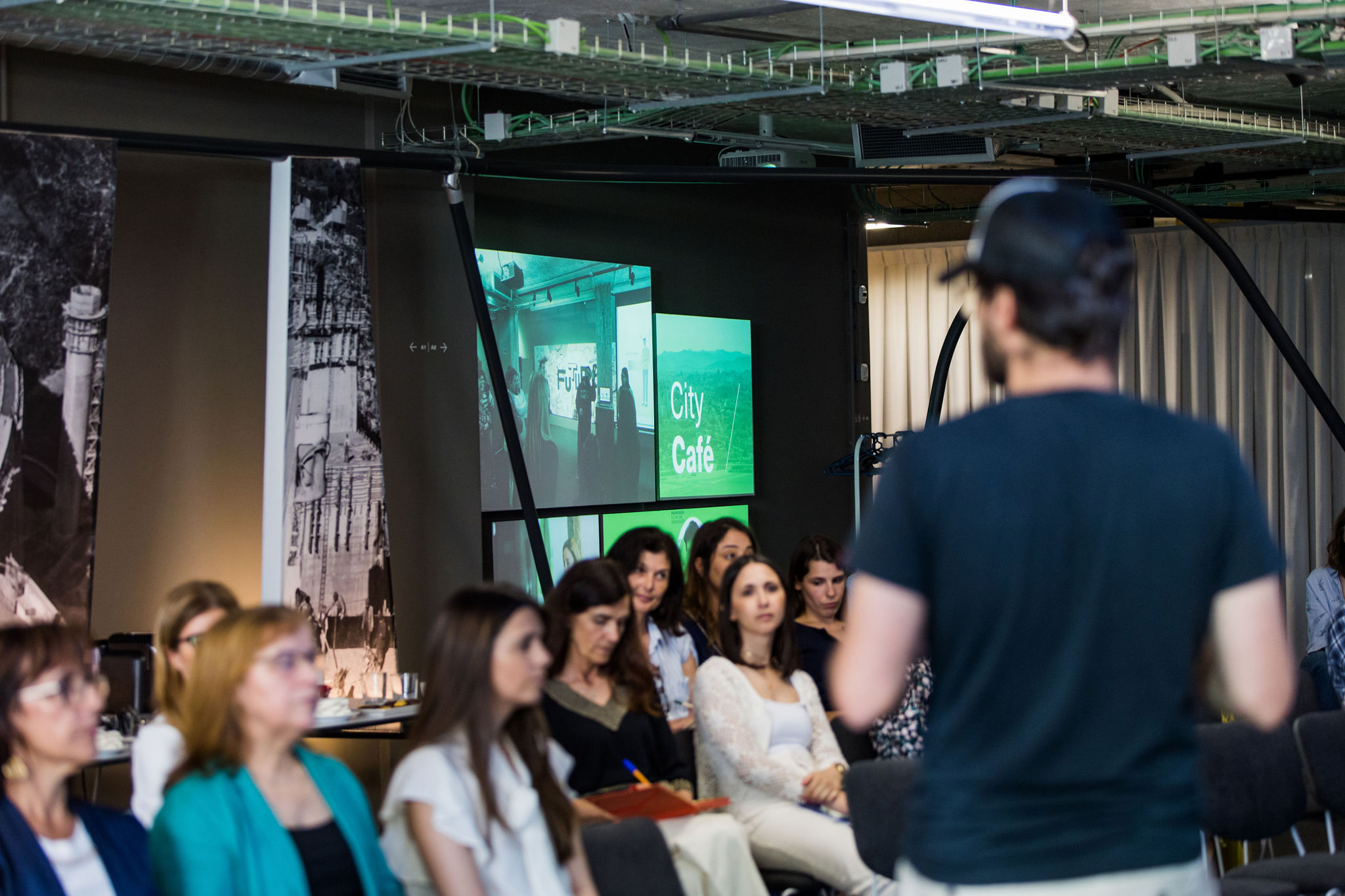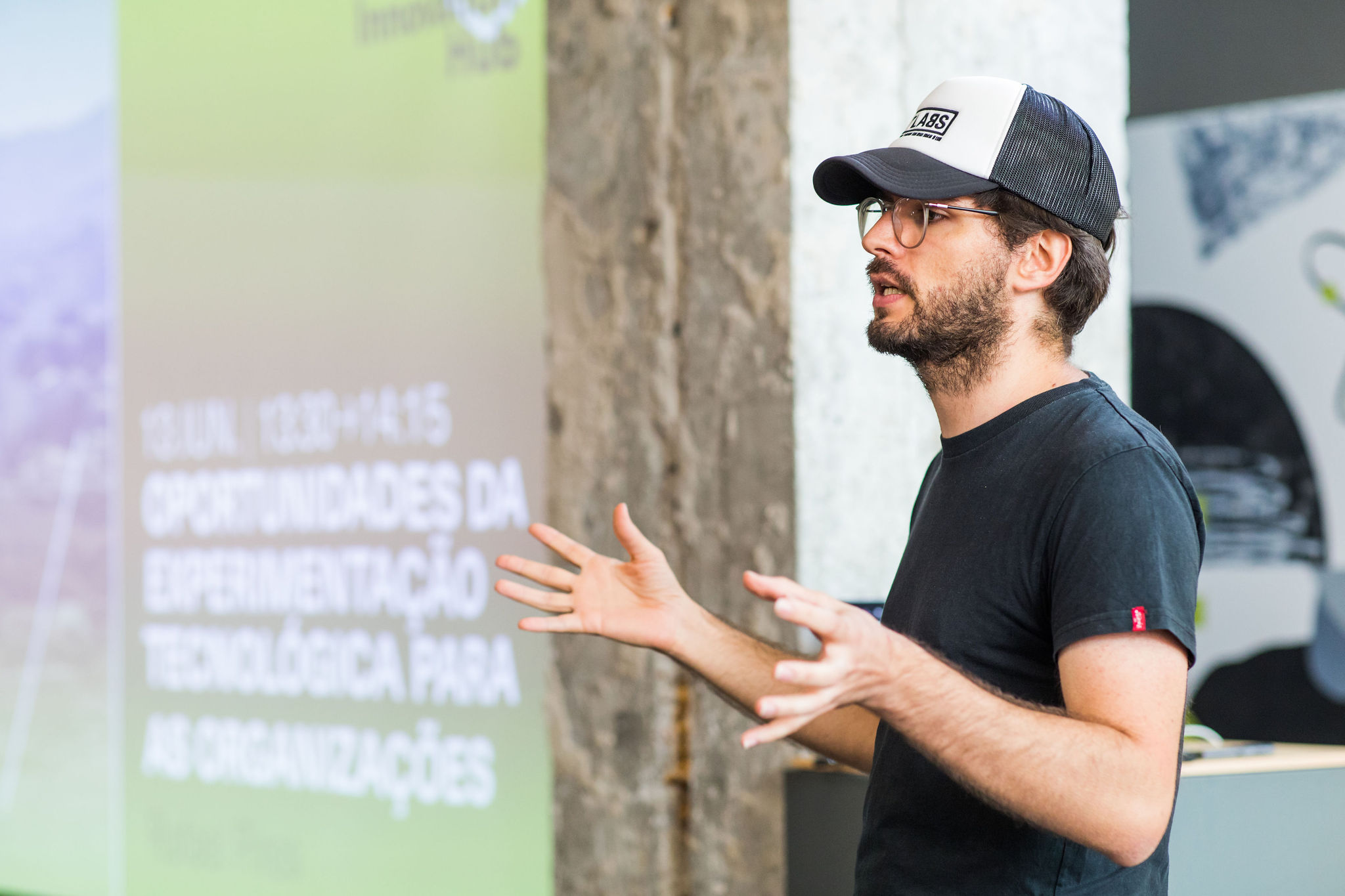Rafael Pires challenges companies to discover the advantages of technological experimentation
Nowadays, it is common knowledge that technology is a key factor in determining a company’s success. In the corporate world there is a realisation that innovation through technological experimentation must be adopted in order to remain competitive. The enormous potential presented to companies prepared to embark on this revolutionary journey was recently highlighted in a session at PIH, with keynote speaker Rafael Pires, a software engineer by training who has developed his activity in the area of experimentation.
As you might expect, there were important lessons learnt from the discussion and, for many of those present, this was a starting point for understanding how technological innovation can effectively transform companies.
Technological experimentation as a necessity
The debate began by emphasising the urgency for companies to experiment with new technologies. Complacency is no longer an option, as sectors are constantly being reshaped by market trends, customer demands and disruptive technologies. Since stagnation can result in irrelevance, forward-thinking companies are motivated to try new things and innovate. As a curiosity, Rafael shared that the average age of companies in the S&P 500 index has fallen to less than 20 years. Since the 2000s, more than half of the companies in this index have been bought out or ceased to exist. This data should make us reflect on a company’s ability to innovate and thus remain relevant and sustainable.
Create a culture of experimentation
The importance of creating a culture of experimentation was one of the main themes of the session. Business organisations need to encourage an environment in which failure is welcomed as an opportunity for development and learning if they want to harness the power of invention. Employees are more likely to think outside the box, investigate new ideas and take calculated risks in an environment that promotes experimentation.
Promote adaptability and agility
Business organisations can become more agile and adaptable in a world that is changing rapidly thanks to technological experimentation. Companies can react quickly to changes in the market, customer needs and new opportunities by continually experimenting with new technologies and methods. This adaptability not only helps them survive, but also creates opportunities to gain a competitive advantage.
Mechanisms for business innovation
There isn’t just one mechanism that serves all objectives. Depending on the objectives, we must choose the mechanisms that best help us achieve them. These are as diverse as: dedicated teams, experimentation teams, an intrapreneurship programme, shared resource logic, hackathons or open competitions that call on external entities to come up with solutions to a given problem, accelerators or incubators, the acquisition of startups, among others.
Encouraging cross-functional collaboration
Rafael Pires emphasised the need for interdepartmental and inter-team cooperation in order to carry out successful technological experiments. To ensure cross-functional co-operation and knowledge sharing, siloed thinking should be discouraged. Together, different minds can discover unusual solutions that might not be clear to separate units.
A strategy for utilising new technologies
Emerging technologies have enormous potential to positively impact companies. The presentation shed light on how companies can use these cutting-edge solutions to optimise operations, improve customer experiences and develop new business strategies. But to get there, you need to map out a strategy and ask three questions:
– What is the goal?
– What is the process?
– What is the desired result?
Real world stories
Throughout the event, inspiring success stories of companies that have embraced technological experimentation and realised considerable benefits were presented, with ITLabs (Sonae MC), Rafael’s current project, being one such story. These success stories inspired the audience, showing them that innovation is possible and that the effort is worthwhile.
In conclusion, Rafael emphasised that for companies seeking long-term growth and relevance in the digital age, embracing innovation through experimentation is now a requirement rather than an option. And this new paradigm necessarily implies working out how to embrace innovation, which can and should be achieved by investing in training, ideation, design thinking, among others.
